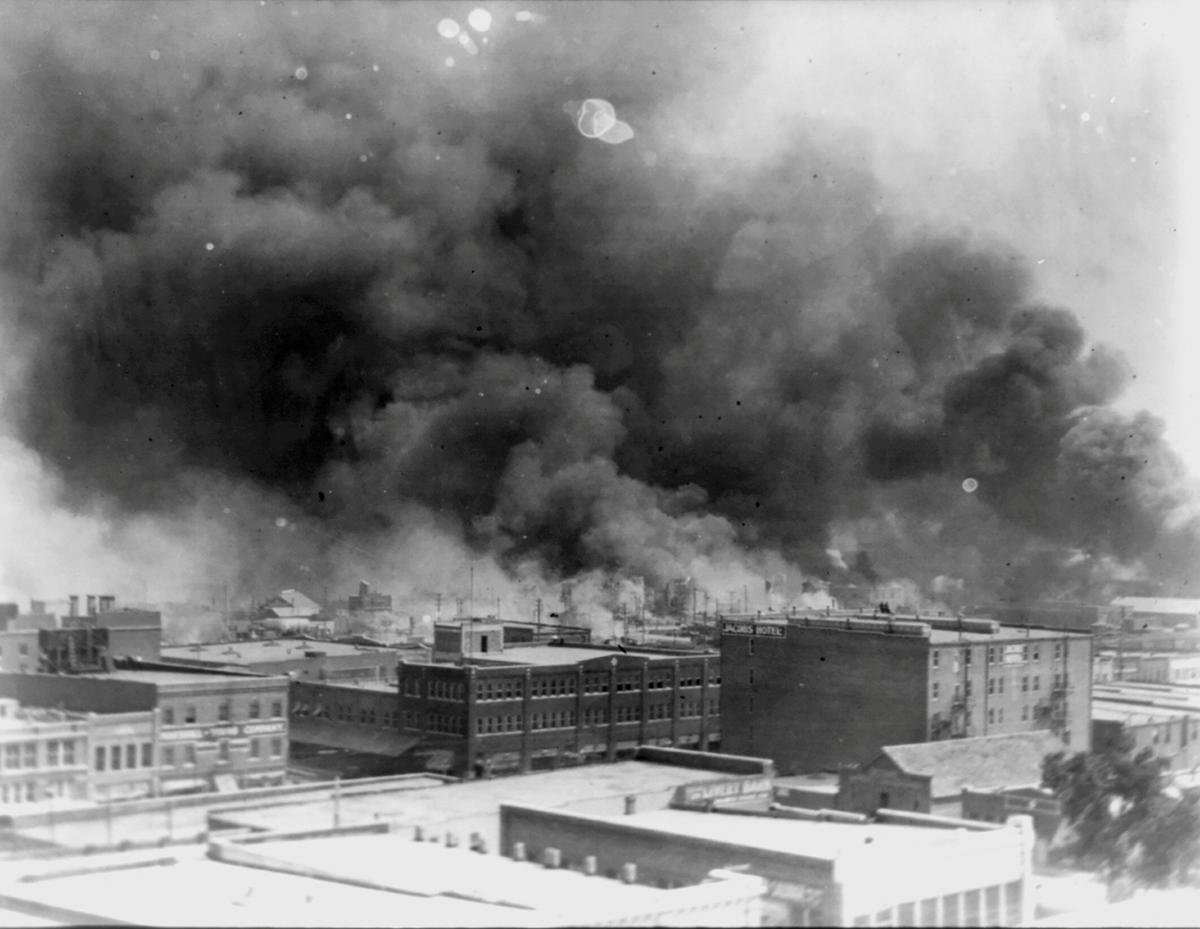WASHINGTON (Reuters) – Amid protests against racial injustice, President Donald Trump is defending his decision to schedule his first campaign rally in months on a day commemorating the end of U.S. slavery and in Tulsa, Oklahoma, a city where white mobs massacred African-Americans a century ago.
Smoke rises from buildings during the race riot in Tulsa, Oklahoma, U.S. in 1921. Alvin C. Krupnick Co./NAACP Records/Library of Congress via REUTERS
Trump, seeking re-election on Nov. 3, scheduled the Tulsa rally for June 19, a day celebrated as Juneteenth. On that date in 1865, Texas became the last of the pro-slavery Confederate states forced to comply with President Abraham Lincoln’s Emancipation Proclamation during the Civil War declaring all people held as slaves free.
Tulsa, a city important in African-American history, in 1921 was the site of one of the bloodiest outbreaks of racist violence in U.S. history in which white mobs attacked black residents and businesses.
Referring to his rally, Trump told Fox News in an interview aired on F

